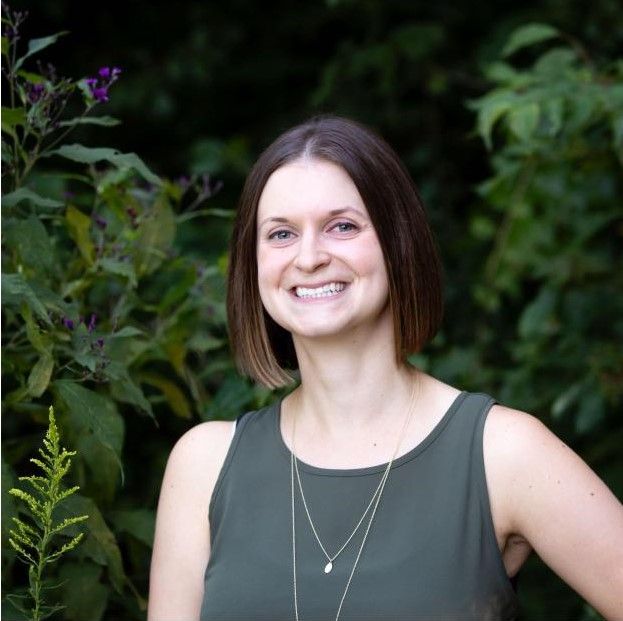Interview with Kate Bailin, School Counselor and Children’s Therapist
Kate Bailin is a dually-licensed counselor who works as both an elementary school counselor and a children’s therapist at a private practice in Northwest Ohio. After earning her bachelor’s degree in Early Childhood Education, she spent eight years teaching in the classroom, where she realized her true passion was helping students understand and fulfill their social-emotional needs. She then returned to school to earn a dual master’s degree in School Counseling and Community Counseling. In her part-time role as a children’s therapist, she focuses on play therapy techniques and solution-focused counseling to help her young clients.
1. You began your career as a teacher and spent eight years in the classroom. You then decided to pursue a dual master’s degree in school counseling and community counseling. What inspired you to make this shift?
 As a teacher, my favorite part of the career was talking with kids and learning about their lives. Through conversations, I was able to learn so much about my students. I began to realize that there was a large need for more people who could help provide kids with social-emotional tools. There is only so much time in the day as a teacher to talk with kids, so I began considering a career change to counseling. I looked into counseling graduate programs in my area and found a great program that would allow me to continue to teach while I pursued my graduate coursework.
As a teacher, my favorite part of the career was talking with kids and learning about their lives. Through conversations, I was able to learn so much about my students. I began to realize that there was a large need for more people who could help provide kids with social-emotional tools. There is only so much time in the day as a teacher to talk with kids, so I began considering a career change to counseling. I looked into counseling graduate programs in my area and found a great program that would allow me to continue to teach while I pursued my graduate coursework.
2. How did you balance your teaching career with studying for your graduate degree?
I found a graduate program at a local university that met in a cohort format. Once a week, from 6 to 9 PM, we met as a cohort and took one graduate class at a time. This format allowed me to teach during the day and focus on graduate work in the evening. Occasionally, I took elective coursework on the weekends to supplement the main classes. When I began my internship year, I had to really focus on balancing my time. I interned at a private practice two to three nights a week and one day on the weekend. It was challenging to balance interning while teaching, but I kept focusing on the end goal to keep me motivated.
3. You also work part-time in a private practice as a children’s therapist. How does your role as a school counselor differ from your experience in private practice?
I work one evening per week at a private practice, as well as one to two Saturdays a month. Working as a child therapist helps me keep my clinical skills fresh. The role is very different than school counseling because I am able to provide more complex interventions as a child therapist. Instead of only seeing a student for 15-20 minutes once a week at school, I have 50-55 minutes to work with a child at the private practice. The clinical setting also allows me to work more closely with the child’s family, which helps to reinforce the skills we are working on. In the school setting, I am able to have a larger impact on the student body. I teach classroom lessons in every classroom once a month, so I am able to proactively provide children with tools on a regular basis.
4. In your experience, why are play therapy techniques so important in working with children?
Children learn through play. Play therapy makes counseling interactive and fun. I use a lot of games, hands-on tools, and role-playing techniques with kids to help us practice the skills we are working on. Play therapy helps kids learn by “doing.”
5. What is a personal strength that has been useful to you in your career? How can new graduates develop their own strengths to further their careers?
A key skill I bring to the counseling field is organization. I have systems for how I do many parts of my job, which helps me to be more efficient. There are many strengths that individuals can bring to the counseling profession! It takes time and effort to develop a comprehensive school counseling program. As a new counselor, I would recommend networking with other counselors in your area. Share your strengths and work together to build your programs. School counseling can be a lonely career when you are the lone counselor in your building. Take the time to get involved with other individuals in the profession to help keep you motivated and excited about the career.
Our thanks to Kate for sharing her insights and experience with our readers. To connect with Kate and learn more about the many free resources she provides for school counselors, visit her website, EduKate & Inspire.
